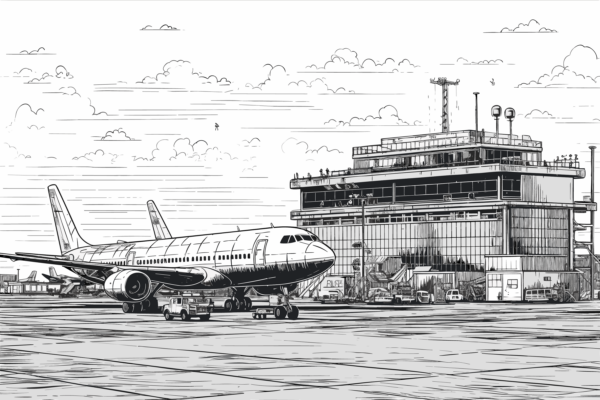

With analysts forecasting a long period of low crude oil prices and lurking fears of slowdown in the Chinese economy, one might expect an increase in Middle East construction claims cases.
But the reality on the ground is different – at least until now – as each country in the region is reacting differently to the steep decline in crude oil prices that accounts for nearly 90% of their earnings.
The UAE (led by Dubai and Abu Dhabi), Kuwait and Qatar are increasing the number of construction projects and subsequently as the construction market has revived there has been a decrease in disputes being referred to arbitration, said Jeffrey Badman, a senior vice president for the Middle East with Hill International. His statement comes on the backdrop of the 2009 global economic meltdown that saw a ‘significant’ increase of claims cases filed with the Dubai International Arbitration Centre. This time around, however, there are some exceptions to the rule.
Oman and Saudi Arabia have reacted to the oil price slide by suspending some projects and rescheduling others to commence at later dates, he said, noting oil projects and those projects funded by governments who are heavily dependent on oil revenue are the first to be impacted. With Goldman Sachs raising a red flag of a further decrease in oil prices to WTI $20/barrel by the year end, compared with some WTI $40/barrel now, it is still unclear what the scenario will be looking forward.
In Saudi Arabia, the rules of the game will make it difficult for contractors to go against the government in arbitration. Rather, they will be left with brokering an amicable solution, Badman said. However, in Oman with stricter auditing and lower oil prices, there has been a rise in the number of arbitrations to resolve disputes between contractors, the government and government-owned companies. Like other places worldwide, in the Middle East the average time it takes for resolution of a construction dispute is about two years, depending on its nature and size, he said. But there are some characteristics typical of the region: in the US and UK it is the common law that guides such cases, while in the Middle East it is the civil law. “Nearly 98% of construction and oil and gas contracts have arbitration clauses, demonstrating a preference for a private means of settling disputes. There are other benefits as well, the parties can select arbitrators who they think are best suited to hear their case, choose the language, rules and procedural law, the location for the hearing, and the award being portable” he said, noting it is probably not a quick solution as many would think it to be. In terms of costs incurred by the parties, Badman said, arbitration is no longer a cheaper option than going to court.
The common centres for arbitration included in Middle East construction contracts are: the International Chamber of Commerce (ICC), the London Centre for International Arbitration (LCIA), Dubai International Arbitration Centre (DIAC), Abu Dhabi Arbitration Centre (ADAC) and the Qatar International Arbitration Centre (QIAC), to name a few. And typically, if the cases involve a large international contractor they may prefer to take the matter out of the region, he said.
Reasons for dispute
Disputes occur primarily due to non-payments, inadequate clarity in contract drafting, changes, incomplete design, aggressive programmes, and a lack of understanding of each party’s risks and obligations. “The use of a heavily amended version of FIDIC in the Middle East and pushing risks to contractors is also another reason for disputes in the region,” he said. For its part, Hill International offers a full suite of services that include risk assessment and advice on procurement of materials, interpretation of contracts, planning and avoidance of delays and claims due to project execution, expert witness testimony and third-party mediation, in addition to others. “We employ people with background in engineering and quality surveying, sponsor their studies for a legal qualification and help to ensure that they have a practical understanding of the jurisdiction of the countries they are working in,” Badman said.
Claims is still an emotive word in the Middle East, but the use of appropriate procurement strategies, clients taking more time to draft contracts to avoid ambiguities and clarifying risks, providing proper contract administration, prompt payments and adopting a more proactive attitude towards assessment of claims, will bring about changes in the Middle East. “There is certainly a case for lessons to be learned,” he said. As the world’s largest claims consultancy firm, next year Hill International will be completing its 30th year of service in the Middle East, and has developed an unmatched track record of working on some of the largest and most complex claims on oil and gas, buildings, defense and infrastructure projects.
Hill’s successes include its flagship suggestion of conducting third-party independent reviews to help contracting parties reach an amicable settlement, in an effort to avoid arbitration. Hill has been engaged on a number of high profile projects in the Middle East to provide this service with great effect. The recommendations from one such review has been signed into law by the head of a Middle Eastern state, Badman said, adding the company also expects a repeat of similar accolades in the near future in the region. “Nearly 85% of our work in the Middle East is repeat business and is a testimony of the services we provide and the faith our clients place in us,” he said.
Hill International has set new standards for claims consultancy and avoidance of disputes in the construction and oil and gas sectors in the Middle East. The expectation will be for the company to achieve further heights.
By Ashok Dutta
Share

April 11, 2024 | Articles
A Model Move: Managing Move-In at the Sylvia H. Rambo U.S. Courthouse

April 8, 2024 | Articles

April 4, 2024 | Articles
Driving Growth and Seizing Opportunity: Lukasz Marcinkiewicz Joins Hill as Country Manager, Poland

April 1, 2024 | Articles

March 27, 2024 | Articles
Building the Future: Women’s Leadership and Community Engagement in the Construction Industry

March 25, 2024 | Articles
Leveraging Data Analytics and Dashboards for Enhanced Project Performance

February 26, 2024 | Articles
Continuity, Creativity, and Collaboration: Delivering PennDOT’s Route 18 Signal Upgrade
We and use cookies and other tracking technologies to improve your experience on our website. We may store and/or access information on a device and process personal data, such as your IP address and browsing data, for personalised advertising and content, advertising and content measurement, audience research and services development. Additionally, we may utilize precise geolocation data and identification through device scanning.
Please note that your consent will be valid across all our subdomains. You can change or withdraw your consent at any time by clicking the “Consent Preferences” button at the bottom of your screen. We respect your choices and are committed to providing you with a transparent and secure browsing experience.
| Cookie | Duration | Description |
|---|---|---|
| cookielawinfo-checbox-analytics | 11 months | This cookie is set by GDPR Cookie Consent plugin. The cookie is used to store the user consent for the cookies in the category "Analytics". |
| cookielawinfo-checbox-functional | 11 months | The cookie is set by GDPR cookie consent to record the user consent for the cookies in the category "Functional". |
| cookielawinfo-checbox-others | 11 months | This cookie is set by GDPR Cookie Consent plugin. The cookie is used to store the user consent for the cookies in the category "Other. |
| cookielawinfo-checkbox-necessary | 11 months | This cookie is set by GDPR Cookie Consent plugin. The cookies is used to store the user consent for the cookies in the category "Necessary". |
| cookielawinfo-checkbox-performance | 11 months | This cookie is set by GDPR Cookie Consent plugin. The cookie is used to store the user consent for the cookies in the category "Performance". |
| viewed_cookie_policy | 11 months | The cookie is set by the GDPR Cookie Consent plugin and is used to store whether or not user has consented to the use of cookies. It does not store any personal data. |


